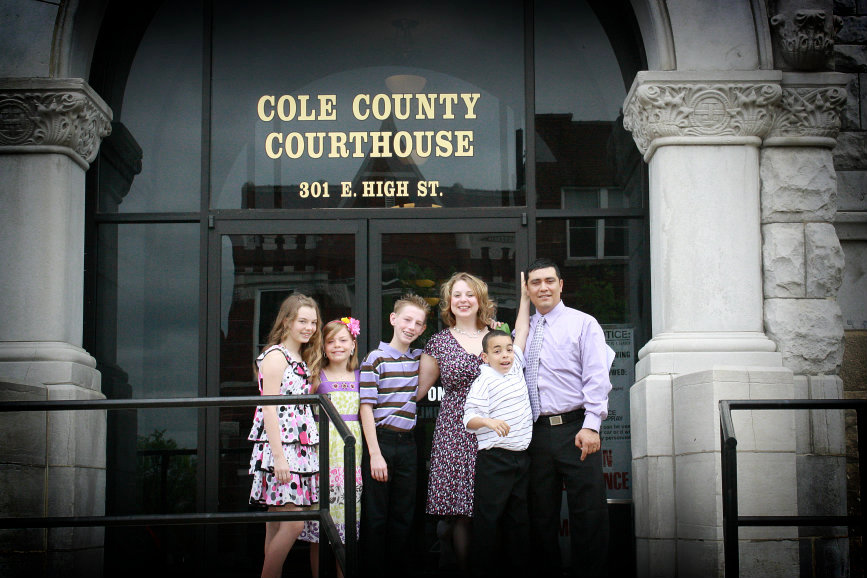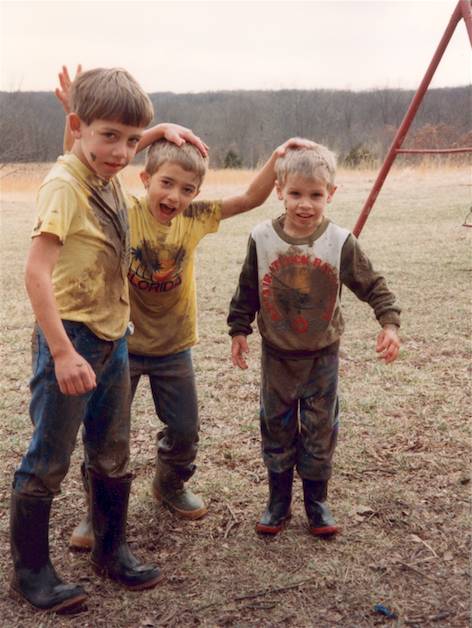Mid-Missouri Foster Care Agencies Offer Experience and Care

Local nonprofits want to build families.
DeAnna Alonso, one of the founders of the Central Missouri Foster Care and Adoption Association, knew she wanted to help children in foster care after her own experiences in the foster care system. “I wouldn’t wish any youth to experience homelessness, hunger, or lack of support, like I did for years,” Alonso says. “Without supports, we fail.”
The Missouri Department of Social Services defines foster care as a method to be used when “circumstances in a child’s life make temporary placement outside of their family necessary for the child’s care and safety,” and “Agencies providing such care to children have the responsibility to ensure that the child receives the necessary care, protection, and services leading to a permanent plan.”
The Missouri Department of Social Services does an annual report, and the number of children in foster care in Missouri continues to rise. In 2013, Missouri averaged 11,257 foster children in a given month. In 2014, the number rose to 12,104. The number of children adopted these years were 1,222 and 1,250, respectively.
The CMFCAA is one of the places that makes it its mission to provide for the needs of foster, adoptive, kinship, and guardianship youth and families. It provides direct support, education, services, and advocacy to foster and adoptive families.
According to their website, there are over 13,050 children in Missouri foster care. Only 48 percent of children who enter foster care are expected to be successfully reunited with their biological family. 14 percent of foster children without permanent family become homeless adults. 18 to 26 percent of foster children without permanent family end up in the prison system.
Experienced in Care
Alonso and four other adoptive moms founded the CMFCAA. They are currently assisting over 640 foster families, over 1,400 foster children, and over 400 adopted children in their service area of 13 counties in central Missouri. Alonso realized her passion for helping children in foster care through her own experience in the foster care system. She later adopted her nieces and nephew from the Kentucky state foster care system.
“Realizing there were gaps in the system is when the opportunity was presented to me to start a support group,” Alonso says. “Instead, I and four other adoptive moms formed a full blown 501c3 foster–adopt association.”
Alonso is the executive director, and her position requires her to meet with legislators, business leaders, community impact teams, taskforces, etc. Children in foster care require support and help from people in multiple areas like these.
“Fund development and community development is key to continue meeting the demanding and critical supports that abused and neglected children require to stabilize trauma,” Alonso says.
The nonprofit world is different everyday for Alonso. No two days are alike, and there are many things she enjoys about her job.
“I enjoy testifying on behalf of legislation, grant-writing, speaking to our communities about the needs, and sharing my experience, strength, and hope with others,” Alonso says. “The ability to connect with resource providers and children is a bonus.”
Other organizations, like Coyote Hill and Great Circle, also work to provide safe places, programs, and services for children in foster care.
Coyote Hill provides a professional and traditional home setting for abused and neglected children. Coyote Hill proudly calls itself “A Safe Place to be a Child.”
Coyote Hill offers a Success for Life program, a life skills program and an independent living program. They operate under “five pillars of success”: physical support, individual growth, spiritual growth, education, and emotional support.
Kari Hopkins is the development director at Coyote Hill, and she takes care of everything related to fundraising and promotions. She oversees all of the marketing, communications, volunteer programs, and events.
Hopkins says it’s important to put on events and celebrate holidays at Coyote Hill; they go “big” for Christmas. The kids make wish lists, and Coyote Hill works to meet each wish from every child. Christmas is made possible through donations from the community, and volunteers help wrap all the gifts too.
“We know many of our kids have never had a Christmas full of family, gifts, and traditions, so we go all out for them,” Hopkins says. “Families, groups, and individuals shop for each of the kids and always bring them amazing toys, clothes, shoes, etc. It’s my most favorite time, especially when kids ask for crazy things like ‘giant stuffed tigers’ and they get them.”
Hopkins sums up her job in one sentence — “I raise money to give kids in need a safe place to grow up.” As a new mom of a son, named Sam, she realizes the home parents are a real gift to their kids.
“Parenting is a sacrificial love I did not fully understand until Sam was born,” Hopkins says. “Our home parents willingly sign up to give of their whole lives for kids they haven’t even met yet. I now see that my job and my passion is to give our kids the same kind of childhood I hope to give my son.”
Family for Life
Coyote Hill is happy to have “changed the lives” of over 300 kids since its opening in 1991. Calvin Temple lived at Coyote Hill off and on from 1990 to 2004; he lived with the founders of Coyote Hill, Larry and Cathy McDaniel, before it was founded. Temple says it really was a safe place to be a child.

“I had parents I came home to every night, I had food, school, activities,” Temple says. “We went on trips and vacations, I participated in team sports, there was space to explore outdoors, and on-site counseling for emotional challenges. Coyote Hill made my transition to adulthood possible.”
Temple also mentioned Christmas at Coyote Hill. He remembers getting his first mountain bike on one Christmas, and a pair of golf clubs on another.
“When you live on the other side of foster care, you realize there are a lot of things you don’t get,” Temple says. “Just coming home and having dinner is a happy moment.”
Temple did not forget about Coyote Hill in his adulthood. He has a family of his own now, and he takes his kids to spend time with his parents at Coyote Hill during Christmas.
“I volunteer and give an account of my experience, and I also do mentoring,” Temple says. “Coyote Hill helped me through some hard times, and I’m still supported through hard times now.”
Temple was passionate in expressing the need for adoption of older kids. He says that many times the children between 10 and 14 years old are overlooked.
“Foster care is a challenge,” Temple says. “It’s a struggle knowing once you hit a certain age, this may be it for you. The older kids are hurting and need families to love them too.”
Great Circle, located in Columbia, also offers programs for children in foster care and for adults looking to become foster parents. They personally offer therapeutic foster care for children who require additional support with behavioral or other mental health needs.
Temple says he never had any negative comments about Coyote Hill. “Coyote Hill was night and day compared to some of my temporary placements,” Temple says. “I had a support system there, and they taught me what I needed to know about life. I wish there were more places like Coyote Hill.”
For more information on foster care or how to become a foster parent, please visit the CMFCAA, Coyote Hill, or Great Circle.


